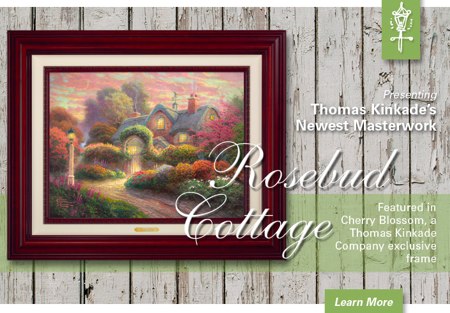Kinkade
Mark Bernstein

In The New Republic, Jed Perl takes a close look at Thomas Kinkade: Artist In The Mall
(Alexis Boylan, ed.)
“A number of contributors cannot resist the temptation to take Clement Greenberg’s old essay “Avant-Garde and Kitsch” for another spin. I find this absurd. What on earth does a piece of writing that was meant to explain the miracle of Picasso, Braque, and Mondrian have to tell us about the work of a man who, though undoubtedly full of himself and his achievement, is mostly out to make a buck?”
Perl doesn’t think much of Kinkade’s paintings, filled with nostalgia for an imaginary past in which everyone lived in a Main Street USA where it was always a nice Spring Sunday and everybody would soon be heading to church with armfuls of flowers from their family gardens. Neither, it seems, do the contributors to this academic volume, who seem to fly to theory as a defense against the banality of their subject.
Perl’s real target, however, is not Kinkade but the enterprise of academic media critique.
This sort of self-aggrandizing pseudo intellectual discourse puts me in mind of Edmund Wilson’s unforgettable attack on pedantry in the English departments, “The Fruits of the MLA,” in which he bemoaned—way back in 1968—“the indiscriminate greed for this literary garbage on the part of the universities.” The only thing that really distinguishes the new greed for garbage from the old is that garbage has itself become so chic. In the Kinkade anthology one finds garbage embraced with both guilelessness and aggressive high-camp cheers.
